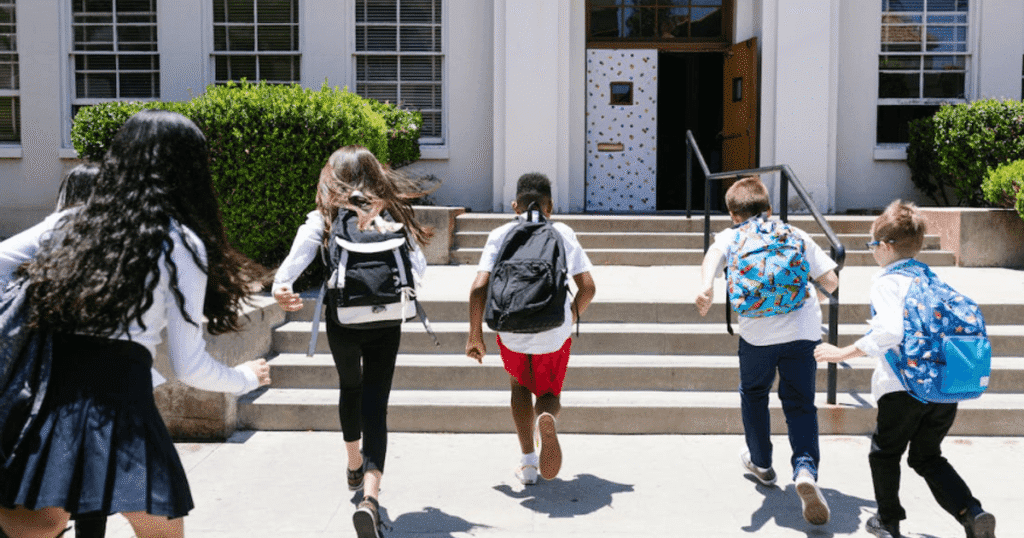The Alabama Education Association’s (AEA) recent call for new homeschool or private school reporting requirements in the wake of nearly 6,000 children leaving the public schools this year ignores the heart of the issue. Families are not disappearing. They are deliberately walking away from a public education system that no longer serves their children well.
The AEA’s hope to regulate non-public schools will not stop that exodus, because regulation is not the problem. The system is.
Why Families Are Leaving
Across Alabama and the nation, parents are choosing non-public education programs for a reason, and it is not to hide their children. They are looking for fit, flexibility and focus.
- They want academic rigor without ideological noise.
- They want teachers who can adapt instead of comply.
- They want their children to feel safe, heard and valued.
- They want educational services that can meet the growing specialized education needs of our diverse student population.
When families withdraw their children from public schools, they are not rejecting education. They are rejecting inefficiency, bureaucracy and stagnation. Students are craving different educational environments to promote a more natural and healthy learning setting.
Microschools, homeschools, and private programs can respond to student needs faster, innovate without waiting for policy approval, and treat learning as a partnership rather than a process.
That is why parents are leaving.
The Student Is the Customer
In countries such as South Korea, the private education system thrives on one simple philosophy: the student is the customer. Even though students attend public school by day, families pay for specialty tutoring and private models for their children to attend after the public school day is done. As demonstrated in the book, “The Smartest Kids in the World,” students choose their private sector over the public and parents are willing to pay for the additional educational models to ensure their students acquire a quality education.
The student as a customer is a mindset that drives accountability, responsiveness, and measurable results.
Here in Alabama, microschools are quietly applying that same principle. When you view the student as the customer, everything changes:
- The teacher becomes a mentor rather than burdened by bureaucratic inefficiencies.
- The program becomes service-driven rather than policy-driven.
- The goals become mastery and outcomes rather than compliance and testing.
Public education cannot compete with that speed of innovation because it is bound by administrative layers that prioritize systems and data collection over students.
Microschools are not waiting for permission. They are meeting real needs right now.
Regulation Will Not Fix What Culture Broke
Calls to re-regulate non-public education assume that oversight will somehow protect children or improve outcomes. However, oversight does not create excellence; culture does.
If Alabama’s public education system wants to retain families, it must earn their trust back by focusing on outcomes, not enrollment numbers. It must seek to partner with families, not against families. It must get back to the basics of education as the only priority. They must trust teachers to teach and practice their craft.
Parents leave when their child’s potential is ignored or their values are dismissed. They stay when education feels like a shared investment and when it delivers results. No amount of reporting requirements can replace that trust.
Microschools Are the Future, Not a Threat
Microschools represent a modern evolution of the one-room schoolhouse: small, relational, accountable, and highly adaptive. They can pivot in weeks rather than years.
While large systems debate policy, microschools are launching project-based courses, character-building programs, and community partnerships that reconnect learning with life.
These schools are not pulling students out of education. They are pulling them back into it.
That is the irony. The very innovation which critics fear is what is revitalizing learning across the state.
The Path Forward
If Alabama truly values education, it must stop trying to regulate its most successful models.
The answer to declining public school enrollment is not to make private programs more like public ones. It is to let innovation thrive where it is already working.
Families have spoken. They are not waiting for permission to pursue a better education for their children.
The lesson is simple: When you treat students as customers, education begins to serve them again. That is the purpose of non-public schools. Let us continue to celebrate wins, successes and growth, and to serve the diverse needs of students in our great state.
We must end the “public” vs. “non-public” rhetoric. The state has codified the right of parents to direct their children’s education. Anyone who advocates for education must be willing to say that the educational program chosen to meet the students’ needs meets that fundamental right.
Educational freedom means choosing which program is right for a child – public or non-public – not the program you’re most vested in or have a financial stake in. But we must put the students’ needs and outcomes first and foremost, and thus we must fight to keep the non-public sector free from burdensome regulations.
Jennifer Ludy is a veteran homeschool mom, a microschool owner in Jefferson County, an education advocate, and a curriculum developer serving Alabama’s non-public school sector.
The views and opinions expressed here are those of the author and do not necessarily reflect the policy or position of 1819 News. To comment, please send an email with your name and contact information to [email protected].
Don’t miss out! Subscribe to our newsletter and get our top stories every weekday morning.

